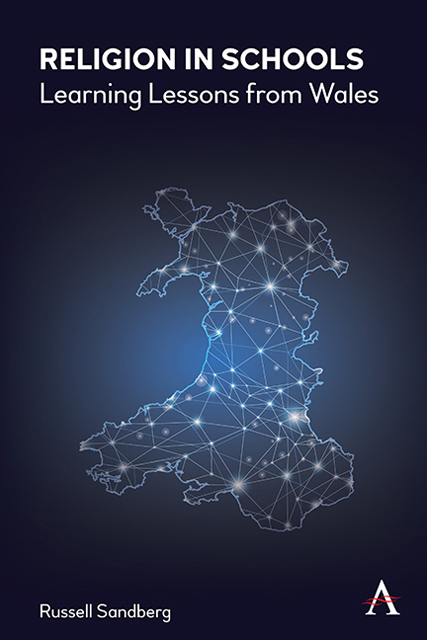7 - The New Curriculum For Wales
Published online by Cambridge University Press: 09 December 2022
Summary
The history of education in Wales has always been at least subtly different to that of England, in part reflecting the different religious makeup of the country (more non-conformist) and other socio-economic differences. For instance, the Welsh Intermediate Act 1889 ‘resulted in a system of publicly funded secondary education in Wales, thirteen years before England’. There has also never been any equivalent of the Church of England committee on SACREs in Wales, given that the Church of England in Wales was dises-tablished in 1920. However, most of the uniquely Welsh developments on education were administrative rather than legislative in character. The most up to date instrument on the matter was Circular 10/94, which was published by the former Welsh Office in 1994 and which provided a summary of the current law.
For the most part, laws on education in England applied also in Wales. These often provided an uncomfortable fit with the Welsh social reality and regularly minimised Welsh difference, Welsh culture and perhaps, most notably of all, the Welsh language. The advent of Welsh devolution at the close of the twentieth century provided a turning point, but it took a while for the opportunity provided by the birth to what was then the Welsh Assembly to be grabbed. The Government of Wales Act 1998 created a National Assembly for Wales and a system of executive devolution. This gave the Assembly powers which were generally the same as given to central government ministers in relation to England that were actionable by secondary legislation. The Assembly did not have primary law-making powers. Its executive powers were buttressed by the Government of Wales Act 2006 which, following a successful referendum in 2011 provided a system of legislative devolution initially through passing laws known as Measures. Part 4 of the Government of Wales Act 2006 came into force in 2011, allowing the Assembly to pass primary legislation (now in the form of Acts) in the twenty subject fields in which they have devolved powers. The Senedd and Elections (Wales) Act 2020 empowered the National Assembly of Wales to rename itself as the Senedd Cymru, or Welsh Parliament, which it did with effect from May 2020.
- Type
- Chapter
- Information
- Religion in SchoolsLearning Lessons from Wales, pp. 53 - 58Publisher: Anthem PressPrint publication year: 2022

